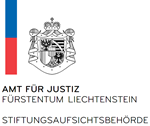The foundation council
The foundation council (Art. 552 § 24 – § 26 PGR) manages the business of the foundation and represents the foundation externally. The primary responsibility of the foundation council is to ensure fulfilment of the purpose of the foundation. Apart from this general duty, there are special duties relating to asset management and accounting.
According to Art. 552 § 24(2) PGR, the foundation council has to be composed of at least two members. Legal entities may be members of the foundation council. This provision of the law aims to strengthen foundation governance, which is to be achieved through a minimum degree of checks and balances among the members of the foundation council.
Fact sheet
The audit authority
For each foundation subject to the supervision of STIFA pursuant to Art. 552 § 29 PGR, the court appoints an audit authority in special non-contentious civil proceedings. STIFA has the status of a party in these proceedings (Art. 552 § 27 PGR).
As an executive body of the foundation, the audit authority is under an obligation to verify once a year whether the foundation assets are being managed and appropriated in accordance with their purposes. It must submit to the foundation council and STIFA a report on the outcome of this audit. If there is no reason for objection, it is sufficient to provide confirmation that the assets have been managed and appropriated in accordance with the purpose of the foundation and in conformity with the provisions of the law and the foundation documents. If while performing its duties the audit authority ascertains circumstances which jeopardise the existence of the foundation, it must also report on this. STIFA may demand from the audit authority disclosure of all facts of which it has become aware during the course of its audit.
The founder, and the foundation council on a subsidiary basis, may submit two proposals for the audit authority, stating a preference. As a rule, the foundation council applies to the court for appointment of the audit authority it has proposed and, together with the application, it transmits evidence of the qualification of the audit authority in accordance with article 191a PGR and a declaration of the audit authority concerning its independence in accordance with Art. 552 § 27(2) PGR. If the legal requirements on the audit authority are fulfilled, the court as a rule appoints the preferentially proposed audit authority. STIFA has the status of a party in these proceedings.
Fact sheet
In the case of common-benefit foundations (especially those with a low amount of assets), Art. 552 § 27(5) PGR provides the possibility of exemption from the obligation to appoint an audit authority.
Additional executive bodies
The founder may designate additional executive bodies (Art. 552 § 16 PGR). All of these have in common that they have no power of representation (Art. 552 § 28 PGR).
The additional executive bodies (curators, advisory boards, etc.) may not only exercise supporting and monitoring functions, but may also have decision-making powers. Instructions by an additional executive body are in turn bound by law, the purpose of the foundation, and the intention of the founder. Instructions contrary to law or the purpose of the foundation are void. The optional executive body may also be granted rights of approval or veto.

